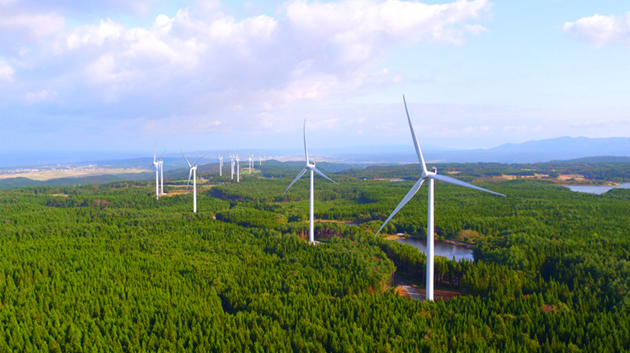
Japan’s wind power body has set a mid-century goal to increase capacity to 140 gigawatts (GW) from less than 5 GW now, it said on Monday, to meet a third of the country’s electricity demand and help it to hit its 2050 carbon neutrality target.
Offshore wind is meant to be central to Japan’s expansion of renewable energy, but progress has been delayed and a government goal of up to 45 GW of offshore wind power in 2040, looks less ambitious than the new Japan Wind Power Association (JWPA) targets.
“We need to map out a clear goal to attract foreign suppliers of wind farms so that they would invest in Japan and build local supply chains here,” JWPA President Jin Kato told a news conference.
The JWPA said Japan, the world’s fifth-biggest carbon dioxide (CO2) emitter, should increase its offshore wind power generation capacity to 100 GW by 2050 to help reduce emissions.
As of end-2022, Japan’s less than 5 GW of installed wind power capacity included only 0.14 GW offshore.
The government last year had to suspend the process of selecting developers for windfarm projects for nine months while it revised bidding rules to address business criticism they lacked clarity.
The JWPA said creating an internationally competitive wind power industry required collaboration between the public and private sectors to speed up progress.
In all, it aims to install 40 GW of onshore wind farms, 40 GW of bottom-fixed offshore wind farms and 60 GW of floating offshore, it said.
The installations would have an economic ripple effect of 6 trillion yen ($44.4 billion) per year in 2050, creating 355,000 jobs while reducing fossil fuel procurement costs by 2.5 trillion yen per year, JWPA estimates found.